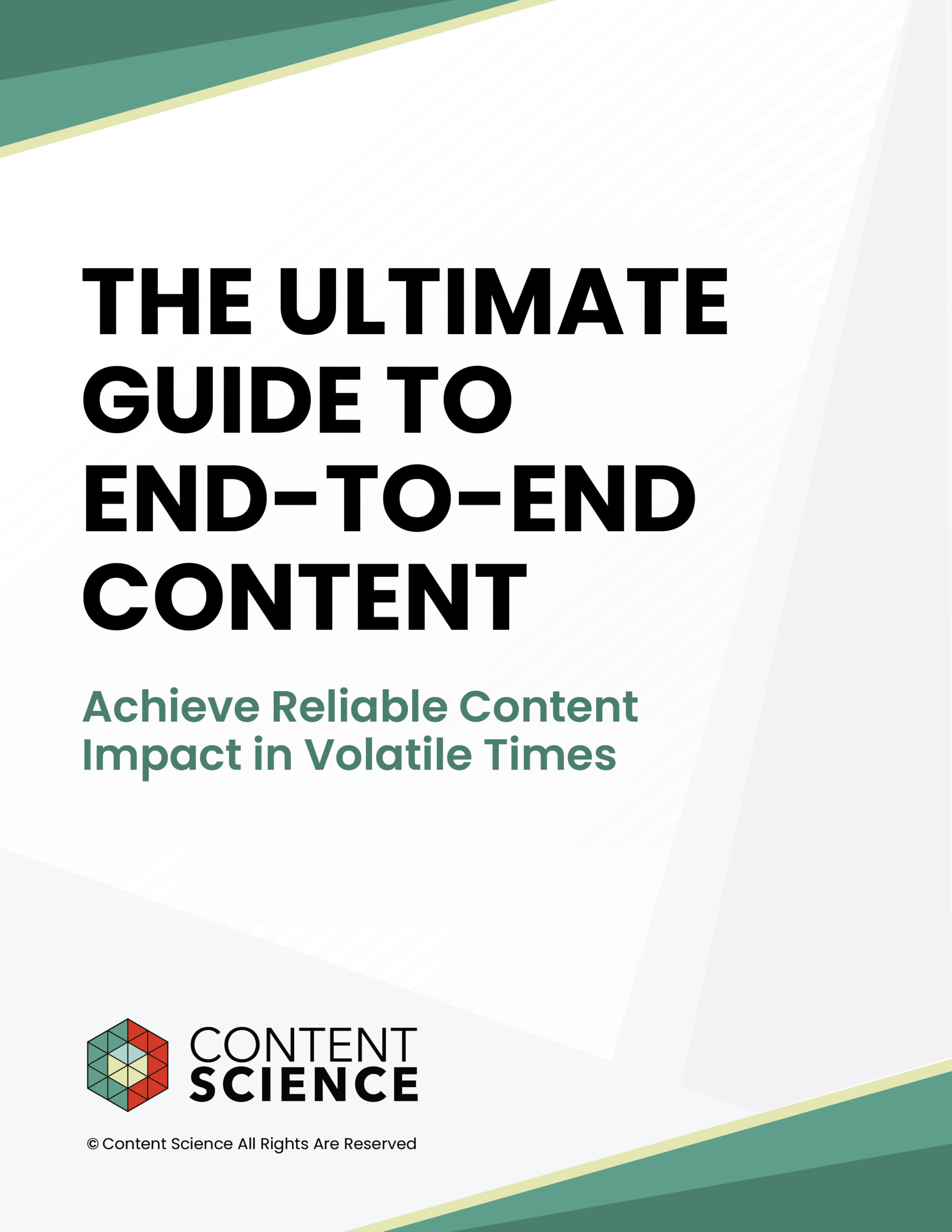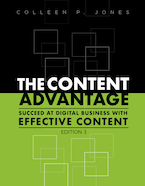
It occurred to me the other day that it’s now been a full decade since I graduated with a degree in journalism. Somehow—along with most of my cohort—I managed to land on my feet, despite the double hit of the global financial crisis and a rapidly shrinking news industry.
While the call of traditional broadsheets was strong, I moved into content marketing, a field where employment prospects are looking pretty healthy.
As it turns out, journalistic skills are in great demand in the content marketing space. According to B2B Content Marketing 2019 Benchmarks, Budgets, and Trends, a study by Content Marketing Institute and MarketingProfs, journalism is the third most sought-after skill behind marketing and business strategy.
Of course, successful content marketers are so much more than just journalists. They are talented researchers, precise data analysts and expert storytellers.
Here are the key skills you (and your team) needs to excel in modern content marketing. (For a more in-depth look into successful content teams, check out The Content Advantage! You can also evaluate your organization’s content maturity with our self-assessment tool.)
Writing and Editing
Most people can write, but not everyone is a copywriter, as this before-and-after case study from Yelp demonstrates. Yelp leveraged the power of proven formulas such as AIDA (Attention + Interest + Desire + Action) to capture user attention and drive better results. By leading with specific features, benefits and value to the reader, along with an injection of humor, Yelp nearly tripled its email response rate.
Marketers need the ability to cut through jargon and craft succinct, persuasive copy in their customer’s language. Not to mention tailoring their writing for the medium: a tweet, email, and blog post are all consumed differently by users so need to be written differently.
If you complement excellent writing skills with expert editing skills, you create a formidable skill set. Beyond proofreading for basic grammar and spelling, an editor can take a step back and review the whole structure of a piece with an eye to improving its flow and clarity, trimming any fat and spotting any gaps. Writers aren’t necessarily their own best editors; it’s not easy to “kill your darlings” as Stephen King aptly puts it.
Research
In order to create content that resonates with your target audience, you need to understand their motivations, interests, and pain points. Only then can you align your company’s offerings with their needs and desires. An additional layer to this puzzle is understanding your position in the market: who are your competitors and what gaps can you fill? To truly make a splash, every piece of content should aim to solve a problem for a consumer.
The answers aren’t always obvious. A classic example of knowing your audience? After struggling to increase milkshake sales, McDonald’s eventually discovered through interviewing customers that their core milkshake customers were commuters. They were looking for something they could consume on the go and to help them pass the time. Only after they understood their customers could they start developing a better product and more effective marketing strategy.
Data-driven content based on original research is an incredibly valuable asset as well. According to Buzzsumo, data-driven content builds your brand credibility and drives more web traffic and social shares than other types of content. Earning citations and backlinks not only raises brand awareness, it helps to improve search engine rankings too.
Creative Storytelling
Storytelling isn’t just about clever words and dazzling videography. Great storytelling takes a deep understanding of human psychology in order to engage your prospects on an emotional level.
Airbnb knows this well. An entire section of its website is devoted to stories from its community, putting hosts and guests front and center. Likewise, it was people who featured at the heart of Airbnb’s “Belong Anywhere” rebrand. The campaign centered on building a sense of home and is illustrated by locals opening up their homes to guests and offering a taste of what those stays could be like.
In practice, storytelling often requires taking something rather prosaic and putting an interesting spin on it. A big picture thinker brimming with creative ideas is a huge asset to any content team, as constantly coming up with fresh ideas is hard at the best of times. While there’s no set formula, a master storyteller can consistently find ways to create a connection between a brand and consumer. This goes way beyond any single item of content; it’s about ensuring all your content works seamlessly together to achieve its mission.
Promotion and Amplification
If content is king, then distribution is queen. In a column for MarketingLand, Blaise Lucey writes: “Content without promotion is like a car without wheels.” Every piece of content should have a defined target audience and a plan to get it in front of those eyeballs.
Without a solid strategy in play, your messages might never make it that far; up to 70% of content is never read.
This includes owned, paid, and earned channels. From social media (both organic and paid) to email marketing and native advertising to syndication, the content marketing team of today needs to be confident across all established and emerging channels.
Analytics
What results are your team’s hard work delivering? Getting a handle on attribution is the only way to understand what content is working and how to best optimize it. Learn more about the basics of content analytics with our content analytics fact sheet.
As marketers, we all need this crucial skill in order to demonstrate the commercial impact of our content activities. Yet according to Content Science’s Content Leadership Study, only 35% of content teams say they evaluate the ROI of their content.
Once you know what data you need, the next step is progressing from a reactive to proactive mentality, consistent reporting that enables your team to make data-based decisions. Because when it comes to analysis, the holy grail is identifying opportunities. True insights go beyond simply pinpointing what happened, and deeper into understanding why it happened and what is likely to happen next time. Here’s how to do a deep dive using Google Analytics.
Design
Humans are intensively visual creatures, with vision being our dominant sense. Three days after hearing a piece of information, we only retain 10% of what we heard; add a picture and that figure jumps to 65%. It’s no surprise that Venngage found 68% of marketers consider visual images essential or very important to their marketing strategy.
As your team grows, design talent will become a crucial part of the whole. From web design to data visualization and infographics to animations, a designer’s touch makes all the difference. Designers bring a level of polish and cohesion to your marketing materials and ensure all collateral meets brand guidelines. You will need at least a basic understanding of what skills a designer should have to be able to choose the right one for your team.
Project Management
Let’s face it, the content marketing machine never rests. There are lots of moving parts at every stage, from production through to promotion and reporting, and just as many different contributors and stakeholders to liaise with.
At Buffer, for example, team members uses more than 60 tools as part of their workflow, and manage the entire editorial process of planning, writing, publishing and distribution through a Trello board. Metrics like traffic, time on page, signups and subscriptions are all tracked, and used to help refine their content strategy.
Great organizational skills are a must to keep on top of the continuous deadlines and manage the flow of work. Plus, there’s the human element as well. Knowing how to collaborate with others to get the best out of them goes a long way. Content excellence involves collaborating across functions and departments to ensure quality and consistency. Whether you’re dealing with internal subject matter experts or external freelancers, managing relationships is a vital element in keeping projects on track.
In Short
Plenty of companies outsource their content creation, and there are lots of benefits to this approach. That said, particularly as you scale up, building an internal team typically becomes a natural next step.
Ultimately, the role of a content team boils down to a few simple things: creating content that users actually want, meeting them in the channels where they already are, and measuring the impact of that content. Get the right mix of skills on your content marketing team and your company will have a leg up in the game.
Events, Resources, + More
The Ultimate Guide to End-to-End Content
Discover why + how an end-to-end approach is critical in the age of AI with this comprehensive white paper.
The Content Advantage Book
The much-anticipated third edition of the highly rated book by Colleen Jones is available at book retailers worldwide. Learn more!
20 Signs of a Content Problem in a High-Stakes Initiative
Use this white paper to diagnose the problem so you can achieve the right solution faster.
Upskill with Content Science Academy
Training for modern content roles through on-demand certifications + courses or live workshops.






Comments
We invite you to share your perspective in a constructive way. To comment, please sign in or register. Our moderating team will review all comments and may edit them for clarity. Our team also may delete comments that are off-topic or disrespectful. All postings become the property of
Content Science Review.